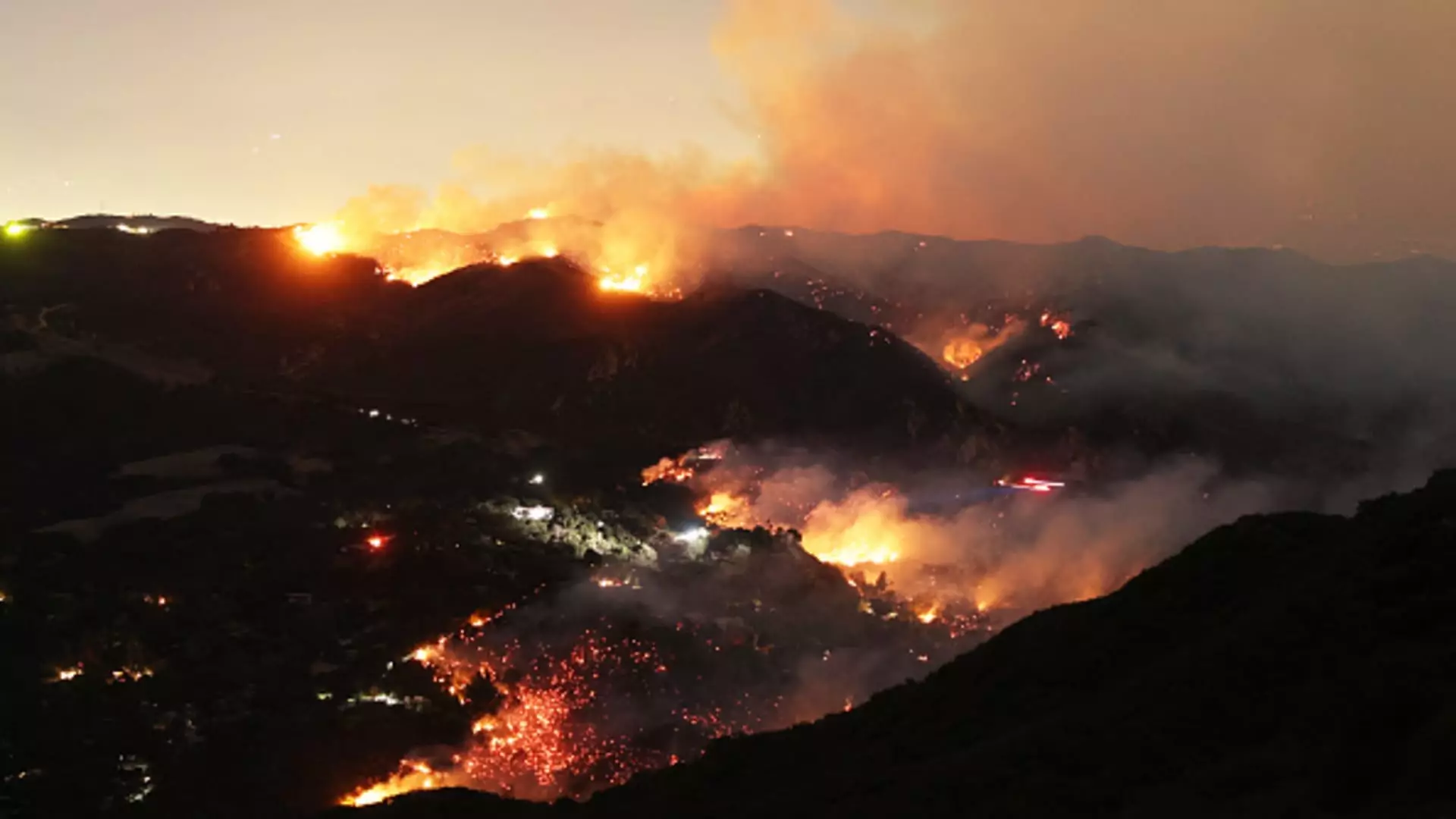Southern California is currently grappling with an unprecedented wildfire crisis that has sent shockwaves through the Greater Los Angeles area. Over the past week, relentless fires have scorched 40,000 acres, obliterating over 12,300 structures, including homes, businesses, and other properties. This overwhelming destruction has forced around 88,000 residents to evacuate, while an additional 89,000 individuals remain in designated evacuation warning zones, ready to flee if necessary. The financial toll of this disaster is expected to be astronomical, with estimates from financial institutions like JPMorgan and Wells Fargo suggesting insured losses may exceed $20 billion, along with additional economic impacts likely to surpass $60 billion.
As residents awash in uncertainty ponder their next steps, it becomes crucial to urgently begin the insurance claims process, as emphasized by Karl Susman, an insurance broker based in Los Angeles. He advises individuals to act swiftly to protect their financial interests, stating that filing a claim does not require having all the necessary information upfront. The sheer volume of claims expected to flood the insurance market in the coming weeks will likely prolong processing times, making early action essential.
For those whose homes have been affected—whether renters or homeowners—the imperative is clear: take immediate steps to start the insurance claims process as soon as possible. This can begin even while firefighters continue to tackle blazes in the vicinity. Once safety is secured, the filing process can commence, significantly alleviating the stresses of an already dire situation.
Shannon Martin, an insurance analyst with Bankrate.com, notes that renters are generally in a similar position to homeowners in terms of accessing resources and support. Following evacuation, renters should prioritize safety, initiate their claims, and inquire about advance funding for temporary living expenses.
Understanding specific aspects of insurance, such as “loss of use” coverage, can greatly aid policyholders during these tumultuous times. Jeremy Porter, an expert in climate-related financial modeling, highlights that such coverage has been designed to provide essentials while individuals cannot access their homes, offering a crucial buffer during distressing moments.
Robust documentation is vital in the claims process. Douglas Heller from the Consumer Federation of America emphasizes that thorough record-keeping—tracking expenses, salvaging pertinent receipts, and chronicling interactions with insurers—can facilitate smoother claims and reimbursements. This attention to detail empowers claimants, enabling them to more convincingly demonstrate their losses when seeking payouts.
Safety measures extend beyond personal possessions, however. Susman also encourages homeowners to contact utility services to halt operations where houses have been damaged or completely lost. Preventing service charges during a period of upheaval can help mitigate financial pressures that survivors face in the wake of disaster.
Furthermore, individuals may find solace in understanding their auto insurance coverage. Homeowners who have lost vehicles to the wildfires should reach out to their insurers to check for comprehensive coverage, which often includes losses associated with wildfires. It is crucial for policyholders to transcend the confusion surrounding the perils of amalgamating home and auto insurance details when dealing with wildfire fallout.
Those who either lacked insurance prior to the disaster or have fallen victim to policy cancellations should promptly be on the lookout for assistance programs aimed at aiding fire victims. President Biden’s recent announcement regarding FEMA’s provision of a one-time aid payment of $770 is a testament to the government’s recognition of the dire situation. Nearly 6,000 individuals have sought this crucial aid, which can be accessed by filing through DisasterAssistance.gov or via FEMA’s dedicated hotline. Local efforts are equally vital, with the California Insurance Commission and local charity organizations mobilizing to provide essential support to those left reeling from the disaster.
With community resilience being tested, Californian residents affected by the wildfires are urged to attend workshops hosted by the Insurance Commission, engaging with industry representatives and fellow survivors to share resources and coping strategies. As recovery progresses, solidifying a sense of community amid the chaos becomes paramount for emotional and financial recovery.
The road to recovery following the devastating impacts of the California wildfires is fraught with challenges, but armed with timely action, appropriate documentation, and available support, residents can begin to reclaim their livelihoods while navigating the intricate battle with insurance claims. Ensuring these vital steps provides a clearer pathway toward recovery in the long shadow cast by these catastrophic events.

